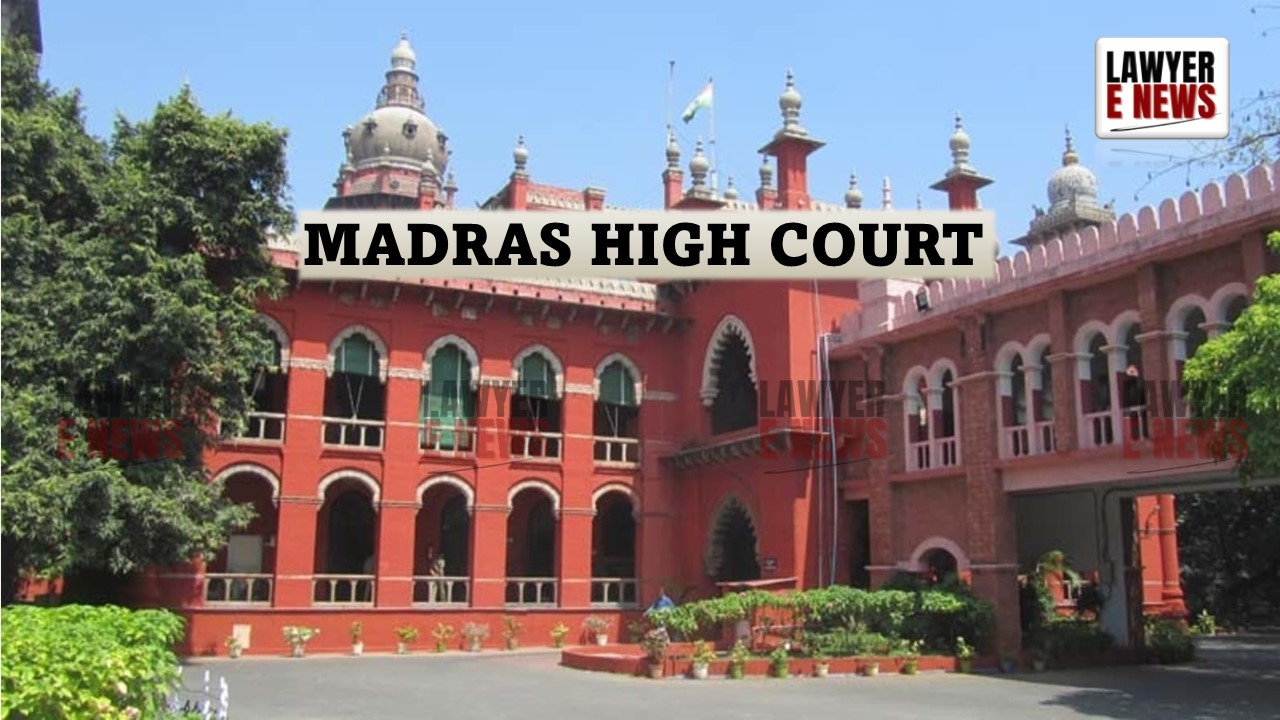-
by Admin
15 February 2026 5:35 AM



"Temple surplus funds must be used strictly for religious and charitable purposes as prescribed under the Tamil Nadu Hindu Religious and Charitable Endowments (HR & CE) Act. Constructing a shopping complex does not fall within this scope," the Madras High Court.
A division bench comprising Chief Justice K.R. Shriram and Justice Senthilkumar Ramamoorthy quashed the decision to use temple surplus funds for the construction of a shopping complex at the Arulmighu Nandheeswarar Shivan Temple in Chengalpattu. The Court clarified that such surplus funds must only be utilized for the purposes outlined in Sections 36, 36-A, and 36-B of the HR & CE Act, 1959.
"Temple Surplus Funds Must Align with Religious and Charitable Purposes"
The Court held that the proposal by the HR & CE Department to use temple surplus funds for constructing a shopping complex was outside the legal scope of Section 36 of the HR & CE Act.
"The purpose of surplus funds is for the propagation of religious tenets, Hindu religious education, or other charitable activities such as feeding the poor and supporting Hindu marriages among the needy. Constructing a shopping complex for commercial purposes does not serve these objectives," the Court emphasized [Paras 10-14].
The Court also rejected the Department's argument that such projects would generate additional revenue for temple maintenance. It observed that there was no feasibility study to justify the economic benefits of the shopping complex compared to alternative uses of surplus funds, such as fixed deposits.
As a portion of the shopping complex had already been constructed, the Court permitted its completion with strict restrictions on its use. The Court directed that the structure be repurposed for activities allowed under Sections 36-A and 36-B of the HR & CE Act:
Feeding the Poor: The building could be used as a center to provide food for the poor.
Hindu Marriages for the Needy: The building could also be used to conduct Hindu marriages for those in financial need.
However, the Court clarified that this ruling should not set a precedent for constructing marriage halls or similar facilities using temple surplus funds [Paras 23-27].
The Court took note of the absence of trustees for the Shivan Temple and criticized the lack of oversight in the decision-making process. The HR & CE Department had failed to prioritize religious or charitable uses of surplus funds, as mandated by law.
"Without trustees, the temple is being run as a de facto kingdom of the Joint Commissioner. The appointment of trustees must be expedited to ensure proper oversight," the Court stated [Paras 7-8].
The Court allowed the petitioner, a devotee and "person with interest" under Section 6(15)(b) of the HR & CE Act, to challenge the appointments if he was dissatisfied with the process.
The petitioner had also filed a contempt petition alleging that the respondents violated an interim stay order issued by the Court on September 24, 2024, halting further construction of the shopping complex.
The respondents admitted to breaching the stay order and offered apologies along with assurances to halt construction immediately. The Court accepted the apologies and assurances, disposing of the contempt petition without imposing penalties [Paras 20-21].
In response to a query about alternative uses for surplus temple lands, the Court suggested environmentally beneficial projects.
"Given global environmental challenges like deforestation, the HR & CE Department could consider using surplus lands for planting native trees, thereby contributing to environmental improvement," the bench observed [Para 22].
Shopping Complex Quashed: The Court quashed the proposal to use temple surplus funds for constructing a shopping complex, deeming it non-compliant with the HR & CE Act.
Charitable Repurposing Allowed: The partially constructed building can only be used for feeding the poor or conducting Hindu marriages for the needy.
Appointment of Trustees: Directed the HR & CE Department to expedite the appointment of trustees for the temple.
Contempt Disposed: Accepted apologies for the breach of the interim stay order and disposed of the contempt petition.
Date of Decision: January 9, 2025
